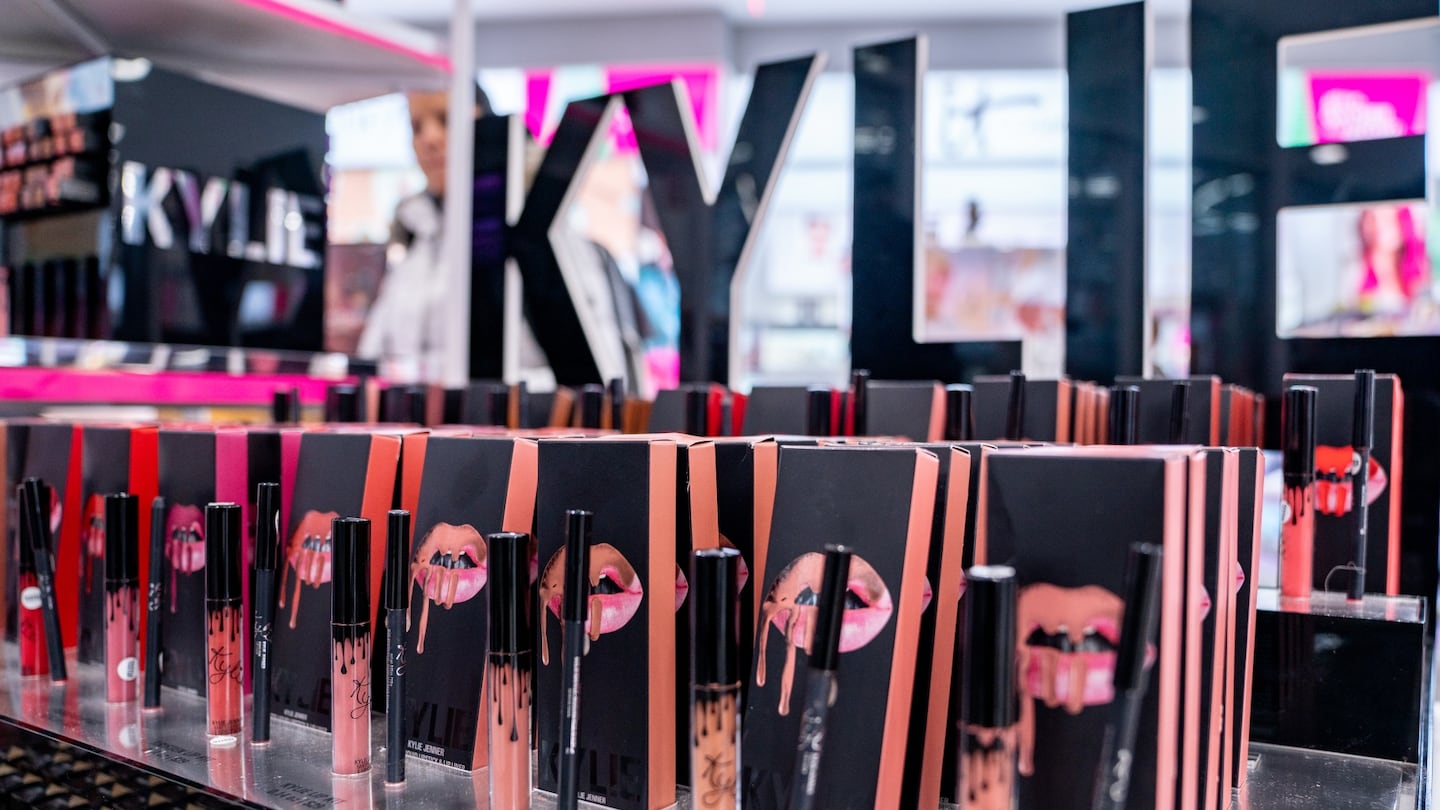
The Business of Fashion
Agenda-setting intelligence, analysis and advice for the global fashion community.

Agenda-setting intelligence, analysis and advice for the global fashion community.

Coty Inc., which owns CoverGirl, Rimmel and stakes in Kylie Jenner and Kim Kardashian West’s beauty brands, saw sales increase in its most recent quarter, as consumers snapped up fragrances and makeup they had largely avoided during the depths of the pandemic. Revenue for the year ending in July 2020 totalled $4.63 billion. Though that total number was a 1.9 percent decrease from the fiscal year 2020, which included the second half of the calendar 2019, Coty’s fourth quarter 2021 revenue was up 89.6 percent from the year prior, when the impact of the Covid-19 crisis was at its most dire. The news sent Coty shares up nearly 15 percent on Thursday.
The results served as validation for Coty’s strategy of doubling down on its pricey fragrances and cosmetics after the 2016 acquisition of 41 brands from Procter & Gamble — across categories including mass players CoverGirl and luxury licences such as Marc Jacobs and Calvin Klein — failed to pay off. Coty launched beauty lines for Burberry in 2017 and Gucci in 2019 and has invested a combined $800 million in the Jenner and Kardashian beauty brands. Last year, the company appointed L’Oréal veteran Sue Y. Nabi as chief executive. She seems to be applying the lessons that have worked at L’Oréal to Coty’s stable of brands.
“One year ago, when I joined the company, the situation was very different,” she said in an interview. “So of course, we’ve been doing everything that needs to be done ... to make sure we’re investing behind the right bets.”
ADVERTISEMENT
Nabi attributed the strong quarter to robust performance in the Chinese and American markets, as well as double-digit and in some cases, triple-digit growth for its prestige brands. That was particularly true in the fragrance category, where Coty operates licenses for brands including Gucci, Marc Jacobs, Burberry, Calvin Klein and Chloe, reflecting an overall boom in the space over the past year. She also pointed to its prestige makeup labels, noting that spending on luxury fashion has also rebounded quickly from the pandemic.
“Prestige is booming,” Nabi said. “There is probably a link with what’s happening in fashion … we are seeing exactly the same kind of results when it comes to our prestige fragrance business.”
For Coty, there’s a massive opportunity in prestige that’s been somewhat untapped in the years since it took over the licenses for brands including Alexander McQueen, Hugo Boss, Bottega Veneta and more.
“You have huge luxury brands that you’ve been carrying the licenses for and only introducing a new fragrance every couple of years,” said Stephanie Wissink, managing director at Jeffries. “That’s been an obvious miss from the industry perspective. But Sue looks at that and sees ripe fruit waiting to get picked.”
Coty struggled more than other beauty companies during the pandemic, when many consumers switched their spending from lipstick and eyeshadow over to skin care. Unlike competitors Estée Lauder and L’Oréal, Coty doesn’t own a leading skin care brand — though it’s investing in Gucci Beauty and Kylie Cosmetics’ skin care products in hopes of making them into one.
“[Nabi] has said, ‘The good news is we don’t have to redesign the wheel, the wheel has been eloquently designed by L’Oréal and Estée Lauder, so let’s see what we have in our asset portfolio that can do what they’re doing,’” said Wissink.
The company is moving fast to boost its offerings in the still-booming skin care market, where Kardashian and Jenner will play an outsized role. Kylie Cosmetics rebranded earlier this year, touting retooled “clean” formulas and a new emphasis on skin care. KKW Beauty’s revamp is still ongoing, and Nabi confirmed that Coty aims to launch Kardashian West’s skin care brand during the second half of its next fiscal year.
“The US market is more and more becoming a celebrity-driven makeup market,” said Nabi. “Kylie is the brand that’s going to drive the growth of Coty’s prestige makeup.”
ADVERTISEMENT
Coty’s mass brands are showing signs of life as well. CoverGirl gained market share for three straight months during the fourth quarter, for the first time since the 2016 acquisition. The company is also introducing new brand visuals for Rimmel and Max Factor across Europe. However, its mass beauty labels still remain below 2019 revenue levels and the category at large doesn’t offer the same rewards as prestige.
“These two categories, skin care and prestige makeup, are highly profitable categories, which are going to help us to take our gross margins to the next level,” said Nabi.
 Opens in new window
Opens in new windowShining light on the $12.3 billion SPF boom.
News of a potential exit has the beauty industry in shock and awe of the Selena Gomez-founded label, and wondering what its next move should be.
L'Oréal reported a 9.4 percent rise in first quarter sales on a like-for-like basis on Thursday, beating expectations and easing concerns about a slowdown in the two biggest beauty markets; the United States and China.
The founder, who was ousted and recently came back to the line as CEO, will regain control of the company.